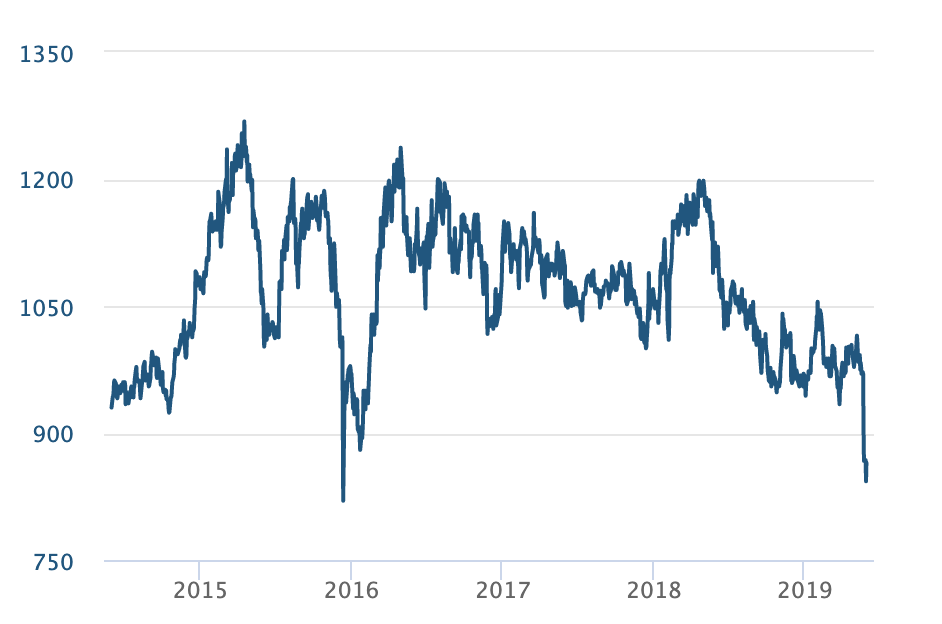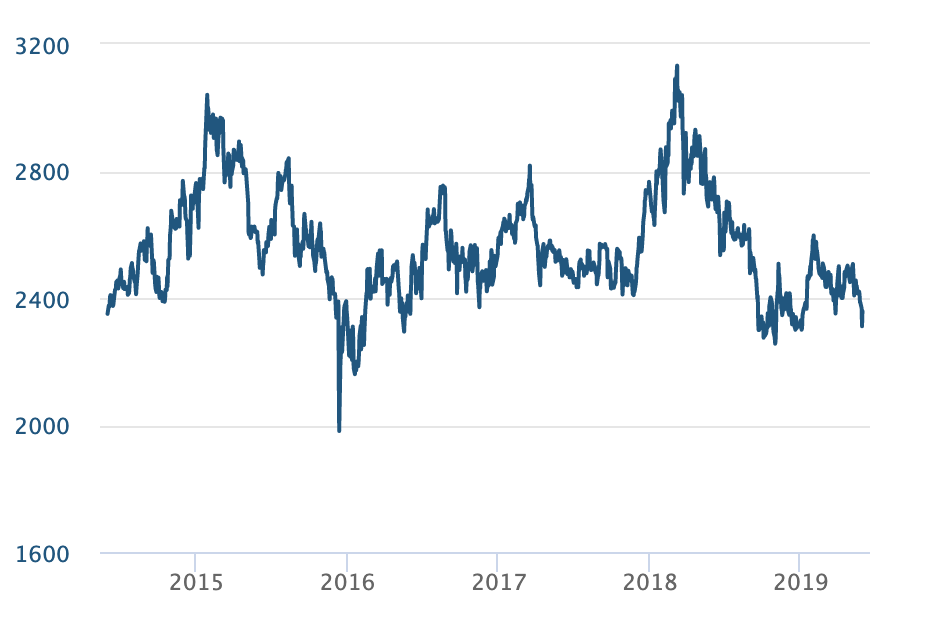For many years, South Africa’s listed property stocks consistently rewarded investors with attractive and inflation-beating dividend growth.
Dividend growth of 8% to 15% was the norm – prompting investors to place their bets on listed property stocks over general equities, government bonds and cash.
However, the days of double-digit dividend growth appear to be gone, judging from the South Africa-focused property companies that have reported results in recent weeks.
Dividend growth of 4%, which is in line with inflation, is now the expectation as low economic growth and poor business and consumer confidence continue to erode the profits of property companies.
In the listed property sector, dividend growth is one of the key metrics that is used by analysts to measure a company’s profitability and investment prospect. Dividends are usually paid from the rental income that property companies generate.
South Africa’s property titans, Growthpoint Properties and Redefine Properties, have reported worsening trading conditions in the local market, which is affecting their rental income and ability to pay higher dividends.
Both are operating in an environment that faces an oversupply of office and retail space, and fewer businesses that are renewing their leases for longer periods and at higher rental rates. This is starting to reflect in their dividend growth forecasts for 2019.
Redefine and Growthpoint have forecast dividend growth of 4% and 4.5% respectively. Business Maverick’s own calculations indicate that Redefine’s dividend growth forecast for 2019 is the slowest in six years; and in 16-years for Growthpoint.
Redefine CEO Andrew Konig says the leasing environment is increasingly shaped by weak economic fundamentals, political uncertainty caused by an election cycle and low levels of confidence.
Redefine share price over five years

“Confidence from a real estate point of view is vital. We operate in a long-term asset class and leasing is a long-term decision. If there is zero confidence like there is now, you will get sluggishness in the market,” says Konig.
Underscoring this is the performance of Redefine’s R72.9-billion property portfolio of retail, office and industrial properties that are based in South Africa. Its flagship properties include Blue Route Mall in the Western Cape, and Centurion Mall and East Rand Mall in Gauteng.
Worsening property fundamentals
Redefine’s rentals across all subsectors of the market recorded negative reversions on lease renewals for the six months to February 2019. In other words, its expiring leases during the period were renewed at lower rates than before. The company’s industrial portfolio, comprised of distribution warehouses, took the biggest knock with rentals down 17.3%, followed by office at -5.5% and retail at -5.4%.
A similar trend has emerged in Growthpoint’s South Africa portfolio, worth R77.1-billion. It includes the V&A Waterfront in the Western Cape (which Growthpoint co-owns with the Public Investment Corporation), Brooklyn Mall in Gauteng and La Lucia Mall in KwaZulu-Natal.
Growthpoint share price over five years

Source: Sharenet
Growthpoint’s rental renewals for the six months to December 2018 fell by 4.4% across all subsectors that had to be negotiated, led by an 8.9% decline in its office properties. Growthpoint CEO Norbert Sasse says he hasn’t seen such declines in the company’s 18-year history.
Redefine and Growthpoint expect most of their growth in 2019 to come from their international investments. Both of their dividend growth has been supported by their exposure to the hard-currency real estate markets of Australia, Romania and Poland.
Growthpoint’s international operations (including direct properties and shareholding in internationally listed companies) comprise 31.3% of its total value of property assets (R138.7-billion). Meanwhile, international operations comprise 26% of Redefine’s total value of property assets (R92-billion).
Asked what it would take to return to dividend growth that consistently beats inflation, Redefine’s financial director Leon Kok says South Africa’s economy needs to grow between 3% and 4% on a sustained basis.
Garreth Elston, a portfolio manager at Reitway Global, agrees with this. “Dividend growth won’t return till the economy starts growing again and oversupply of office and retail rental space is absorbed. It’s sadly a long way off. Offshore is the only source of growth at the moment,” he says. DM





















 Become an Insider
Become an Insider